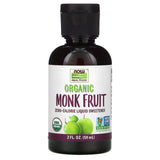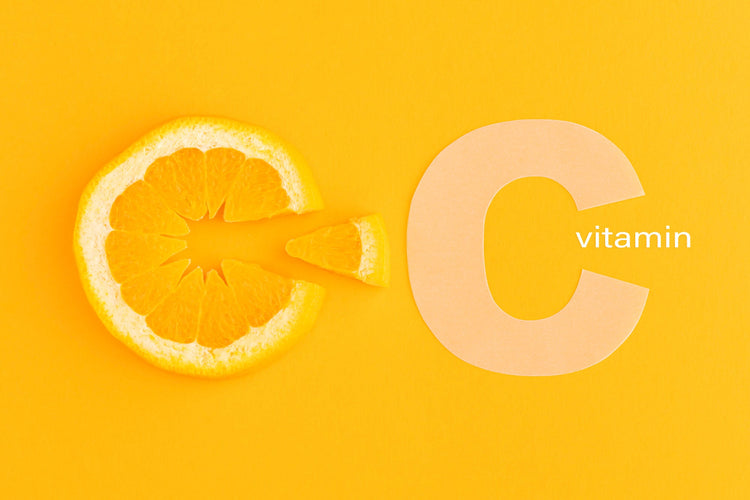Coke Zero vs Diet Coke: An In-Depth Analysis


Related products
Tab was introduced by Coca-Cola in 1963 as its first diet drink, with an aim of addressing the rising demand among customers for low calorie alternatives to ordinary sodas. Nonetheless, it took Coca Cola until 1982 to launch Diet Coke and ever since then, this version has stood the test of time as a popular choice. Due to changing customer tastes and innovations in sweetening agents technologies, a no-calorie Coke alternative known as Coke Zero Sugar or simply Coke Zero was developed in 2005 that more closely mimicked the original flavor.
Two of Coca-Cola’s major low calorie beverages are Diet Coke and Coke Zero. Both are intended to replicate traditional coke flavors without sugar and calories present in their original versions. However, despite their similar market positioning, they feature distinct flavour profiles and ingredient compositions, you may also be wondering Is Coke Zero Bad for You?
This is a comparative analysis of Diet Coke and Coke Zero that aims at presenting an unbiased assessment on their taste, content and health consequences. The aim is to help buyers make informed choices based on either their nutritional requirements or preferences for taste.
Coke Zero Vs Diet Coke
In the battle between Coke Zero and Diet Coke, both Coke drinkers stand their ground on whichever side they are on. Although many believe both drinks are the same, the differences are as follows:
Coke Zero
The creation of Coke Zero was aimed at making it taste as close as possible to classical Coca-Cola flavor but without any sugar content. It possesses an intense rich flavour similar to the original one. In addition, many consumers report that it tastes less sweet than the aforementioned rival brand while also lacking its hallmark aftertaste
Diet Coke
In contrast, Diet Coke presents a lighter taste compared to Coke Zero, with a different blend of flavors than the original Coca-Cola. It is described as crisper and sharper, with a pronounced sweetness due to the use of artificial sweeteners. Some consumers report a unique, metallic aftertaste, which can be attributed to the sweeteners used.
Taste test comparisons and public opinion
Numerous taste tests reveal a divided public opinion between Coke Zero and Diet Coke, indicating a subjective preference influenced by individual taste buds and perceptions. According to a poll conducted by a health magazine, approximately 54% of respondents preferred the taste of Coke Zero over Diet Coke, citing a closer resemblance to traditional Coca-Cola as the main reason.
Ingredients and Health Implications
Both beverages contain carbonated water, caramel colour, phosphoric acid, aspartame, and caffeine. However, Coke Zero also includes sodium benzoate and potassium citrate to mimic the traditional Coke flavour more closely. In contrast, Diet Coke contains citric acid and natural flavors, contributing to its unique taste.
Coke Zero and Diet Coke primarily utilise aspartame as a sweetener, which has been a subject of controversy in medical discussions. Both Diet Coke and Coke Zero are sugar-free and calorie-free due to the use of nonnutritive sweeteners like aspartame and acesulfame potassium (Ace K). Dr. Sarah Brewer, a registered dietitian, states that while aspartame has been approved for use by health authorities worldwide, ongoing research suggests potential links to health concerns such as headaches and mood alterations when consumed in large quantities. However, she emphasises that these effects are highly individual and typically occur well beyond the consumption levels of an average diet soda drinker.
Both beverages contain caffeine, known for its stimulatory effects on the nervous system. The caffeine content in Coke Zero and Diet Coke is approximately 34 mg per 12 oz can, which is the same amount. However, excessive consumption can lead to insomnia, nervousness, and increased heart rate. It is crucial for individuals with sensitivity to caffeine or those with certain medical conditions to monitor their intake.
Other health considerations
Other components, such as phosphoric acid, present in both drinks, have been scrutinised for their potential to affect bone health by reducing calcium absorption. While occasional consumption poses minimal risk, habitual intake of phosphoric acid-rich beverages should be approached with caution, particularly for individuals at risk of osteoporosis or dental erosion.
Marketing and Brand Positioning for Coke Zero and Diet Coke
Coke Zero and Diet Coke have been positioned distinctively within the market to appeal to different segments of consumers. Diet Coke, introduced in 1982, traditionally targets individuals seeking low-calorie alternatives to standard Coca-Cola, often with a slant towards a female demographic. Conversely, Coke Zero, which was launched more recently, aims to provide a taste closer to that of the original Coca-Cola while still appealing to those conscious of sugar and calorie intake, targeting a broader demographic including a younger, more gender-neutral audience.
The marketing strategies for Coke Zero and Diet Coke reflect their target demographics. Diet Coke’s campaigns have historically focused on lifestyle and fashion, aligning with a more sophisticated, adult consumer base. In contrast, Coke Zero’s marketing has often been tied to sports and entertainment, aiming to resonate with a younger, more dynamic audience. This strategic positioning influences consumer perception and choice significantly, affecting the brands’ market performance. These marketing strategies reflect the clever tactics and consumer preferences that have contributed to the success of these products under the Coca-Cola Company.
Brand loyalty differs markedly between the two products. Diet Coke has a longstanding and dedicated consumer base, while Coke Zero has cultivated loyalty by offering an alternative that is closer to Coca-Cola's original taste. The difference in public perception is significant; while Diet Coke is seen as a classic, Coke Zero is often perceived as a more innovative option. This perception impacts the consumer's decision-making process when choosing between the two beverages.
Nutritional Comparison for Coke Zero and Diet Coke
From a nutritional perspective, both Coke Zero and Diet Coke offer zero calories and no sugar, positioning themselves as healthier alternatives to regular soft drinks. However, their ingredients differ slightly, which can affect individuals' choices depending on their dietary restrictions or health goals.
The zero-calorie claim of both beverages is appealing to consumers aiming to reduce their caloric intake, and both drinks are also zero sugar. However, it is essential to note that “zero-calorie” does not equate to “healthy.” Nutrition experts stress that while these drinks may aid in weight management when used to replace higher-calorie beverages, they should not be consumed in excessive quantities due to the presence of artificial sweeteners and other additives.
Environmental Impact and Sustainability of Coke Zero and Diet Coke
The environmental impact of Coke Zero and Diet Coke extends beyond the drinks themselves to their packaging. Both products are available in plastic bottles, cans, and glass bottles, each with different environmental footprints. Recent initiatives by Coca-Cola aim to reduce this impact by improving recycling rates and introducing more sustainable packaging solutions.
Coca-Cola has committed to sustainability goals, including reducing waste and carbon emissions across its product range. These efforts include improving the recyclability of packaging and sourcing more sustainable materials, crucial steps in mitigating the environmental impacts of both Coke Zero and Diet Coke.
Consumer Preferences and Trends of Coke Zero and Diet Coke
Sales trends for Coke Zero and Diet Coke have fluctuated over the years, influenced by changing consumer preferences and health trends. Consumer preferences are often influenced by how each beverage tastes, with some preferring the closer resemblance of Coke Zero to the original Coca-Cola. Recently, there has been a notable shift towards Coke Zero, attributed to its closer taste to the original Coca-Cola and its appeal to a broader audience.
The rise in health consciousness among consumers has significantly impacted the popularity of Coke Zero and Diet Coke. As people become more aware of the health implications of sugar and calorie intake, they are increasingly turning to these zero-calorie alternatives.
Consumer preferences for Coke Zero and Diet Coke vary regionally, reflecting cultural differences in taste and health perceptions. For instance, some regions may favour Diet Coke due to its longer market presence, while others may prefer the taste profile of Coke Zero.

People Also Ask
Which is healthier, Coke Zero or Diet Coke?
The health implications of Coke Zero and Diet Coke are quite similar since both are low in calories and sugar-free. The choice between them largely depends on individual preference and sensitivity to their different artificial sweeteners. Neither is "healthier" in a nutritional sense; moderation is key.
Is Coke Zero healthier than normal Coke?
Coke Zero is healthier than normal Coke in the context of sugar and calorie content. Normal Coke contains high levels of sugar and calories, which can contribute to weight gain and increased risk of diabetes and other health issues. Coke Zero offers a sugar-free alternative, but it's important to consume it in moderation due to the presence of artificial sweeteners.
What is the sweetener in Coke Zero?
The primary sweetener in Coke Zero is aspartame, combined with acesulfame potassium (Ace-K) to enhance the sweetness. These artificial sweeteners help give Coke Zero its distinctive taste without the added calories found in regular sugar.
Can diabetics drink Coke Zero?
Diabetics can drink Coke Zero in moderation as part of a balanced diet. Since it is sugar-free, it does not directly raise blood sugar levels. However, individuals should monitor their overall consumption of artificial sweeteners and consult with a healthcare professional to ensure it fits into their personal dietary needs.
Conclusion
While Coke Zero and Diet Coke are marketed as healthier alternatives to regular sodas, they cater to different consumer bases through distinct taste profiles, marketing strategies, and brand positioning. Nutritional content, environmental impact, and consumer preferences play significant roles in their market performance. As health consciousness continues to shape consumer choices, the competition between these two products highlights the evolving landscape of the beverage industry.

















 Rated Excellent by 26,523+ Reviews
Rated Excellent by 26,523+ Reviews